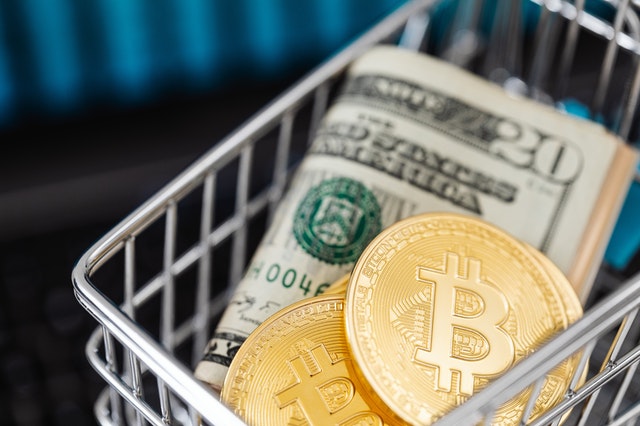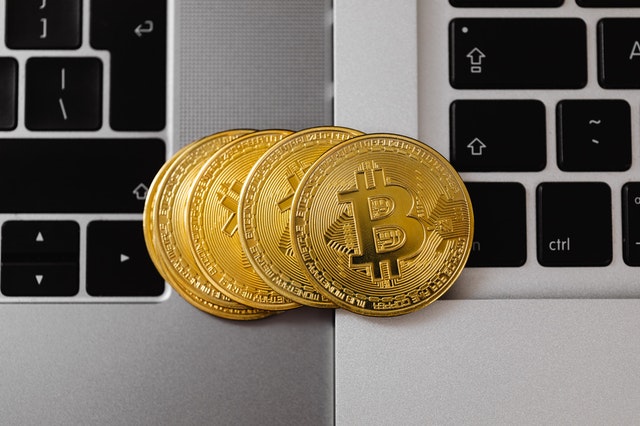Consider this – originally, people envisioned the Internet would operate as an online encyclopedia. Basically – as the world’s largest digital library. Decades later, we can see that the Internet operates as a completely different beast.
From communications to news to social interaction, A.I and a virtual marketplace – the Internet impacts our days and nights in ways that initially seemed unimaginable. In close comparison – we can chart the rise of digital currency as following a similar path to that of the Internet – however, hold onto your hats folks because it’s growing with considerably more speed.
Back in the day, the phrase ‘The internet’s going to change the world’ became as common as the latest TikTok dance craze. These days, we’re seeing a similar warcry for the rise of digital currency.
When Bitcoin first emerged as a digital currency, many were captivated by its potential to change the archaic methods of banking that have been around for hundreds of years. Across the globe there was a feeling of both excitement and fear around how digital currency might impact the Financial sector – whether it would cause havoc to governments, dethrone banks, or even destroy Wall Street – a wide range of notions seemingly taken straight from a sci-fi movie. Remember Y2K, when the end of the world was nigh?
Comparatively, in the early EARLY days of digital currency, there was only Bitcoin, no Ethereum, and no Qoin. The supporters of Bitcoin – the Bitcoiners – were fighting the same fight that the tech revolutionaries of our time fought for the Internet. They were (and still are) united in ensuring Bitcoin is recognised as a reputable and viable global currency of value. There has been considerable public push back against the restrictions, giant hazard signs put up by big banks and fights with governments to validate the legitimacy of this emerging new technology.
“Innovation is the ability to see change as an opportunity – not a threat.” Steve Jobs
New technologies are always met with resistance. There are always sceptics that will say ‘This will never work’, ‘This is a scam” and “This is only for criminals.’ Every new idea is always met with resistance. It happened during the infancy of the Internet. It even happened with the invention of automobiles. There are always lobby groups, governments, and regulators trying to fight change. But more often than not – useful technology is a force to be reckoned with, and once it gains momentum, there’s no stopping it.
Digital currency is the future
Consider this, a larger percentage of the world’s population has access to the Internet rather than to a bank. This means that more people can access digital currencies like Bitcoin, Ethereum or Qoin than they can hard cash. After the global economic crashes we have endured, the instabilities and limitations of traditional finance models are more visible than ever. People are now less likely to trust establishment systems.
Durability is a major issue for fiat currencies in their physical form. A dollar bill, while sturdy, can still be torn, burned, or otherwise rendered unusable. Digital forms of payment are not susceptible to these physical harms in the same way. For this reason, Bitcoin is tremendously valuable.
What’s happening right now, is revolutionary. There’s been a huge shift towards the uptake of digital currency, particularly in the last year.
The COVID-19 pandemic forced innovation across various sectors, but even more so for digital finance. There’s always a pending threat of financial crisis or economic downfall with traditionalist systems, leading people in heightened times of fear to consider options and innovations. With COVID-19, we’ve seen a shift in the global up-take of digital currency. More and more people are accessing and using digital currencies as a form of payment than ever before.
Once the genie is out of the bottle, there’s no stopping it. 
There is an inevitability of success with certain technologies (for example Facebook) – regardless of government approval or interference, and digital currency certainly fits this model. In the initial stages of digital currencies, governments sought to ban them, while others looked to create their very own version.
This resistance is again similar to the story behind the uptake of the Internet. In the 1970s, telecommunications companies tried to stop it. They didn’t take it seriously. But once they realised the potential impact they wanted to control it through regulation. Finally, after REALLY understanding that the Internet was now an unstoppable freight train – they sought to own it asking ‘How can we buy the internet?’
The answer to those telecom officials was a flat-out NO. The Internet, like digital currency, exists as something that has been designed for the benefit of the people – the global populous.
Governments will always seek to retain some sort of control when a product is set to impact the lives of the general public, changing the way we live and work. There is sure to be regulation from a government perspective, but consider this, they are also seeking to benefit from blockchain aspects.
Some people rely on centralised and controlled networks monitored by government regulatory bodies – but consider the performance of banks in the led up to the economic crisis – the ethical limitations, money laundering, and corruption stemming from the very top. The traditional model of banking is visibly flawed. And why so anti-digital currency? Is it because it takes away their power? And instead, gives it back to the people?
In saying this, there is no reason the two systems can’t co-exist. (In fact, they’re probably working on that right now!). If there’s a use, then there’s always a value.
It’s still early days – and we don’t have all the answers yet. But consider this, it’s been 12 years since the Digital Currency White Paper. The hurdles have been great. But look how far digital currency has come. Twelve years after the birth of the internet – there wasn’t even a web browser established!
It’s still early days for digital currency. Watch this space, and consider if you want to be a part of the future because Bitcoin, Ethereum and Qoin are here to stay.

